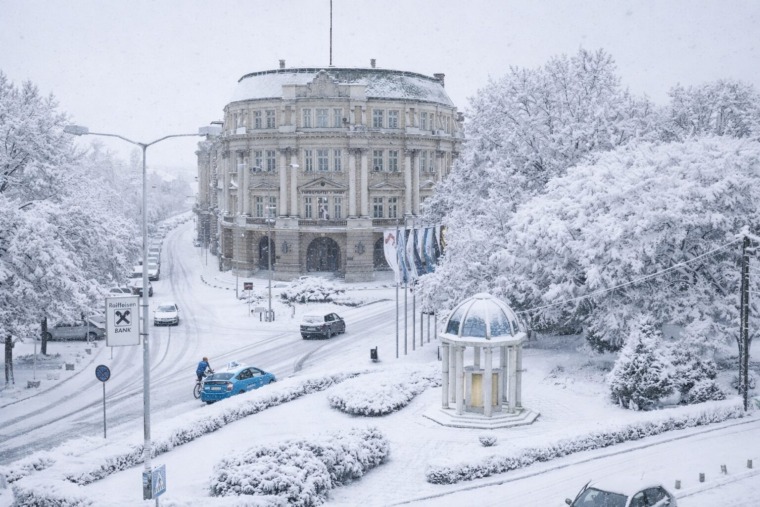
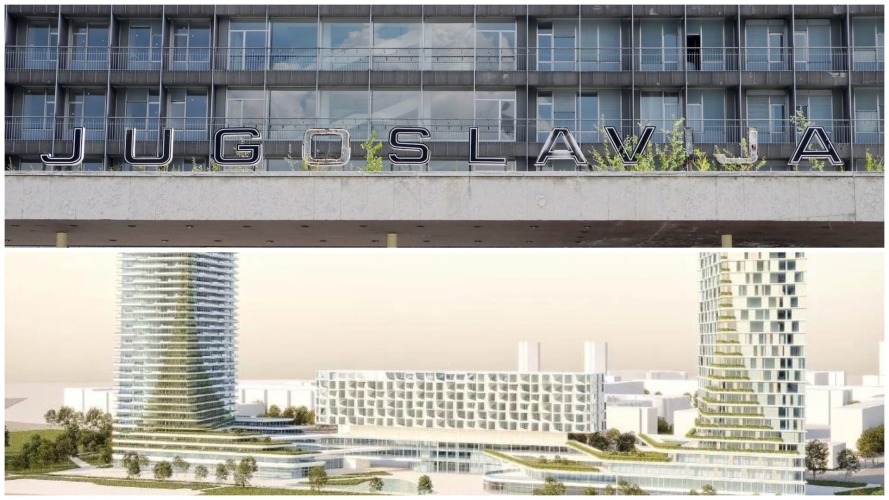
Hotel Jugoslavija, an architectural icon of Belgrade and a symbol of Yugoslavia’s post-war modernist aspirations, is making way for a bold new future. Opened in the 1960s, the hotel embodied luxury and national pride, hosting global luminaries like Queen Elizabeth II, Richard Nixon, and Neil Armstrong. Its lavish interiors featured highlights such as a chandelier adorned with 40,000 Swarovski crystals.
However, the once-glorious landmark fell into decline over the decades, suffering damage during the NATO bombings of 1999 and becoming a shadow of its former self. In March 2024, Millennium Team, a leading Serbian construction company, acquired the property. Their ambitious plan: demolish the existing structure and replace it with a state-of-the-art Ritz-Carlton hotel complex.
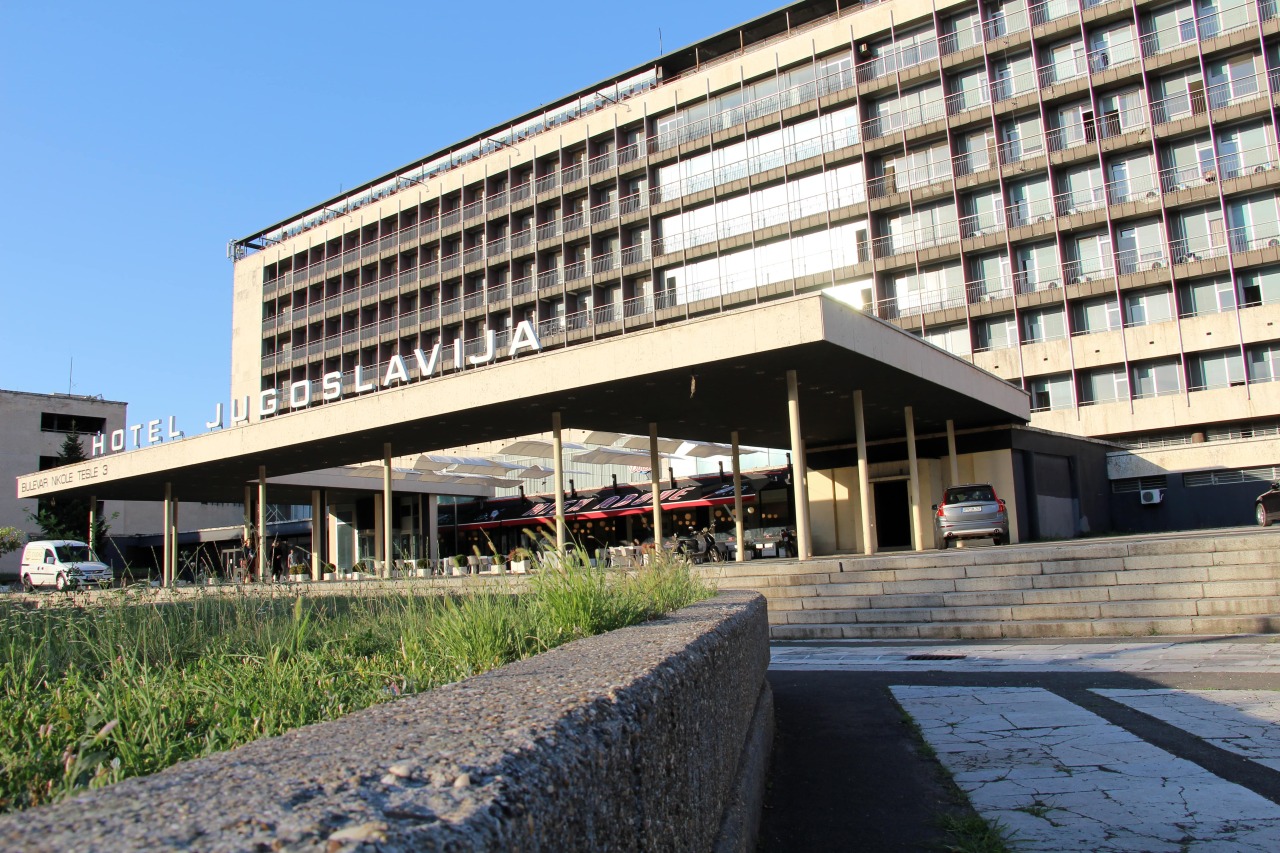
The new development includes a Ritz-Carlton hotel, a 42-story residential tower, a 34-story office skyscraper, a marina, and a landscaped promenade connecting Nikola Tesla Boulevard with the Sava River. The project promises to redefine Belgrade’s skyline and is set for completion ahead of the Specialized Expo 2027, an event expected to draw millions of visitors to the city.
Despite its promise of modernization and economic growth, the redevelopment has sparked heated controversy. Many residents and preservationists view Hotel Jugoslavija as an irreplaceable part of Belgrade’s cultural and historical identity. Critics argue that its demolition erases a tangible link to the city’s past and an era of architectural innovation. Protests have erupted, reflecting broader tensions over urban development priorities in Belgrade.
The demolition has also raised environmental concerns, with activists warning of potential asbestos hazards. Public health experts are urging strict safety measures to protect residents while dismantling the old structure.
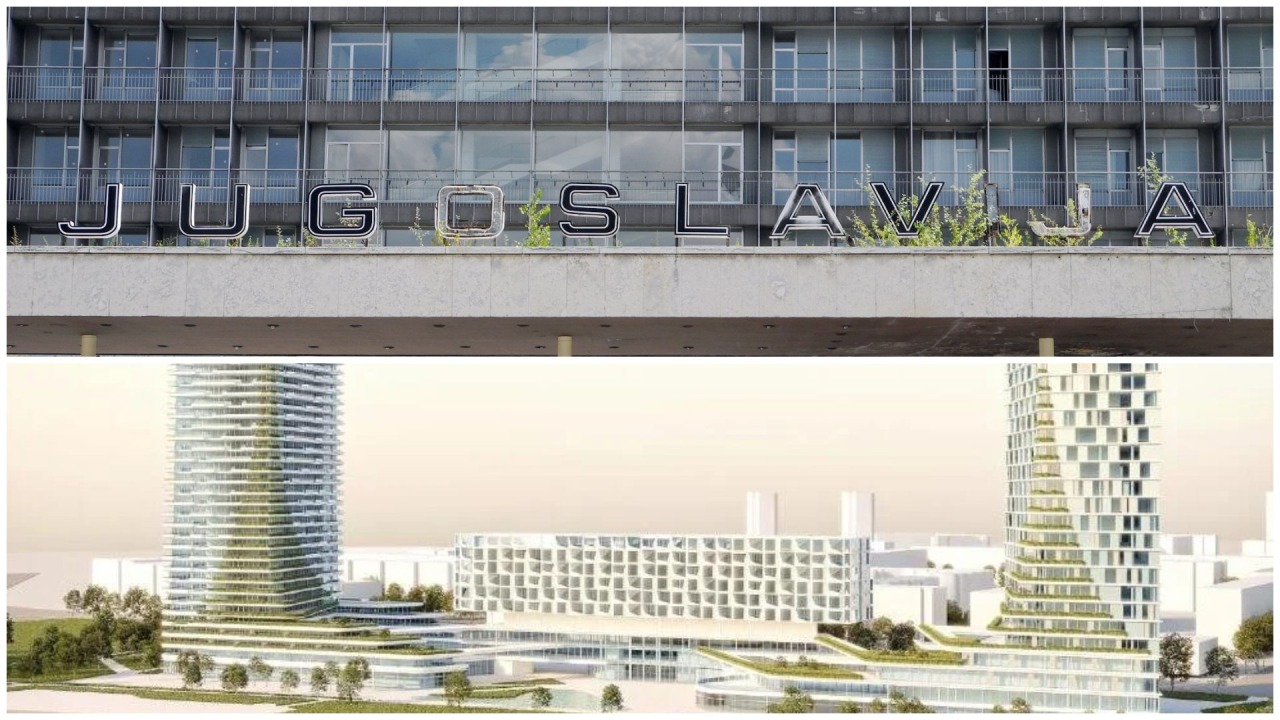
Proponents of the redevelopment argue that the aging hotel is no longer viable and that the transformation reflects the evolving demands of global hospitality. The Ritz-Carlton complex aims to position Belgrade as a world-class destination, blending luxury with modernity.
As the legacy of Hotel Jugoslavija transitions to the future, it stands as a poignant reminder of the balancing act between preserving heritage and embracing progress in Belgrade’s ongoing urban evolution.
A Short History and Interesting Facts About Hotel Jugoslavija
A Symbol of Unity and Luxury
Hotel Jugoslavija opened its doors in 1969 as one of the largest and most prestigious hotels in the Balkans. Situated along the banks of the Danube in Belgrade, it was a showcase of Yugoslavia’s post-World War II ambition and modernist architecture. The hotel was designed to symbolize the unity of the six republics of the Socialist Federal Republic of Yugoslavia, and its name, “Jugoslavija,” reflected this vision.
Host to the World’s Elite
Over the decades, the hotel welcomed a host of dignitaries, celebrities, and global leaders. Guests included Queen Elizabeth II, U.S. Presidents Richard Nixon and Jimmy Carter, and astronaut Neil Armstrong. It was also a favorite venue for lavish state receptions, high-profile weddings, and cultural events.
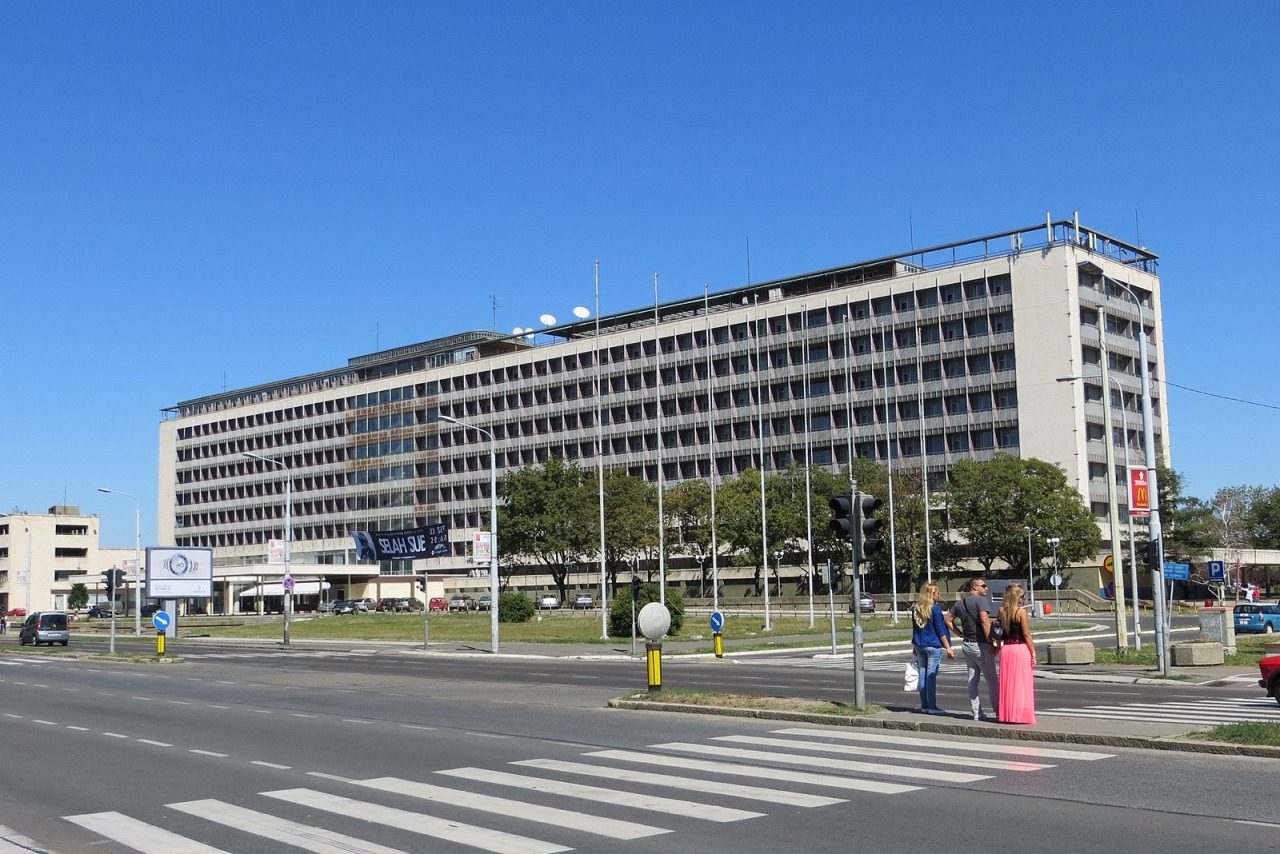
Architectural Grandeur
The hotel’s most iconic feature was its massive lobby chandelier, made of 40,000 Swarovski crystals and 5,000 bulbs, a striking display of Yugoslav craftsmanship. The building itself was a testament to modernist design, with clean lines, expansive windows, and an imposing façade that stood as a testament to Yugoslav innovation.
A Tumultuous Decline
The hotel’s fortunes began to fade in the 1990s as Yugoslavia descended into political turmoil and conflict. In 1999, Hotel Jugoslavija suffered significant damage during NATO airstrikes, which targeted nearby infrastructure. Although it continued operating in a limited capacity afterward, its reputation as a luxury destination diminished.
A Scene-Stealer in Pop Culture
Hotel Jugoslavija featured prominently in Serbian pop culture, serving as a filming location for movies and music videos. In recent years, it became the subject of documentaries, such as Nicolas Wagnières’ Hotel Jugoslavija, which explored its history and symbolism.
A New Beginning
While the hotel’s demolition marks the end of an era, its legacy lives on in Belgrade’s collective memory. The transition to a Ritz-Carlton complex has sparked discussions about how the city balances preserving its history with modern development. As a landmark, Hotel Jugoslavija continues to inspire nostalgia, pride, and debate.
This unique history makes the site not just a place but a reflection of Yugoslavia’s rise, fall, and the ongoing evolution of Belgrade.
Related Articles


From Fireworks to Family Dinners: New Year’s Eve Across Serbia
December 31, 2025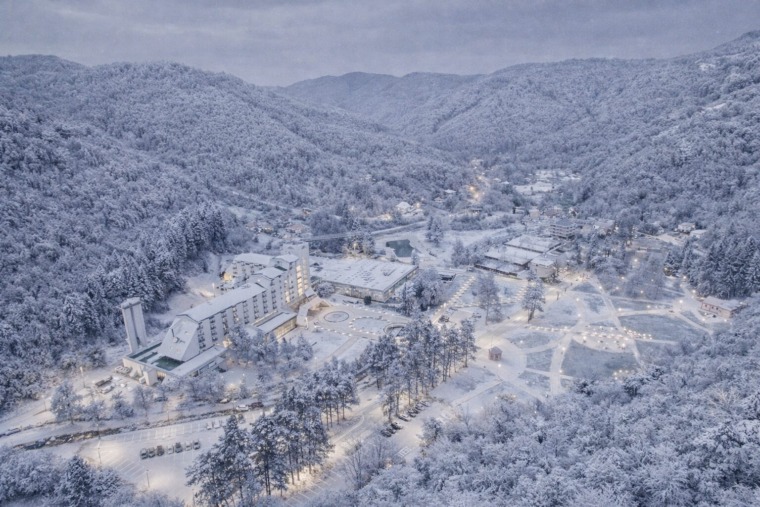
Kuršumlijska Banja: Serbia’s Quiet Winter Spa Escape
December 30, 2025
Novak Đokovic Receives Special Globe Soccer Award in Dubai
December 29, 2025

